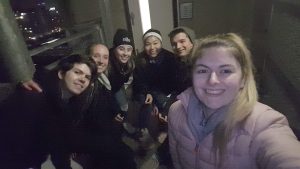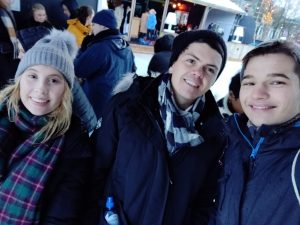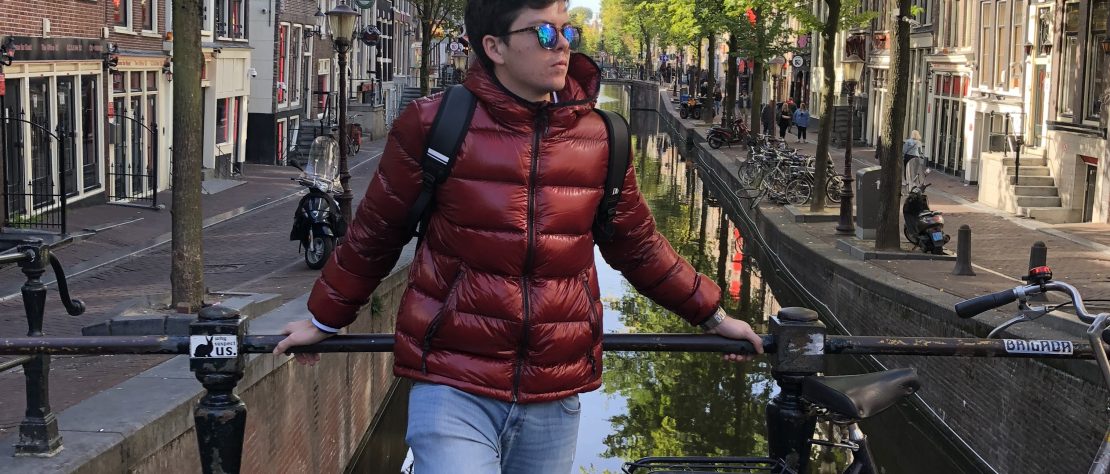Before you take off on your flight to the land of bicycles and stroop waffles, there are a few preliminary things to get done. This blog doesn’t seek to provide a wordy narrative of my experience. Instead it unpacks the salient steps and tips that can hopefully make the process a whole lot easier and less painful – something I wish I had.
Pre-departure:
Step 1: Ensuring you can legally get into the Netherlands
Since my passport is green, I was required to set up an appointment at the Dutch Consulate (Strand Street, Cape Town City Centre) to get my VISA and residents permit. The process takes approximately 2 weeks and is well coordinated. If there is one thing I can recommend here is that you don’t waste time getting a portrait photo from anywhere except Tothills (a photo shop near the consulate). I say this because they are very strict with the specifications of the picture and it seems as if only that photo shop can get it right (sounds a bit like a partnership in my opinion…).
Step 2: Housing
Utrecht seems to get everything right, but there is one fundamental slip in its perfect CV: housing. The demand for housing far exceeds the supply and I therefore cannot stress enough that you secure housing ASAP. I managed to do so through SSH (a student housing company affiliated with Utrecht University). The accommodation was basic, but I would say that the main benefit of going this route (as opposed to private) is that you will be amerced with all the international students – which is what it’s all about!
Step 3: Preparing for the unexpected
It is mandatory for you to undertake a health examination upon arrival, so make you sure you have 60 euros in cash when you do go for your appointment. Over and above this, you will also need to set up student health insurance. This was put to use in my case since I contracted measles and was hospitalised for a few days (not the ideal ending to an exchange I might add). While there are many companies providing said service, I went with AON which I had no complaints with.
Setting-up in Utrecht:
Step 1: Municipality
You will need to register with the municipality (situated next to Utrecht Centraal Station). This is arranged by booking an online appointment and it is well advised to get this done as early as possible that you have your BSN number.
Step: 2: Money
I would recommend getting a Dutch bank account simply because the Netherlands is very card reliant. Since the exchange programme doesn’t exceed 6 months, many of the Dutch banks refuse to open a bank account, except ING. The opening of the account was relatively easy and all I can recommend is that you set up this appointment after your municipality appointment as you will need your BSN number.
Step: 3: Transport
The Dutch transport is honestly incredible, but it does comes with a hefty price tag. To save a bit of money in this regard I would recommend that you purchase an ISIC international student card which will give you 15% discount on all Dutch transport. But more importantly, you need a bicycle. If you don’t, you will likely be left stranded after a night out (yes, the Dutch do go clubbing on bicycles). Utrecht is extremely safe but they do have a problem with bike theft. I thus recommend that you don’t buy a cheap bike when you arrive (as these are usually the ones stolen) but rather rent a bike through Swapfiets.
Experience at Utrecht University:
It felt like yesterday that I was standing at Platform 5 (not 9 & ¾) in Schiphol Airport with my huge luggage bag waiting for the train to Utrecht. It didn’t take me long to understand why Utrecht locals are so incredibly proud with their city. It is difficult to describe Utrecht without doing it injustice, but it suffices to say that it has a charm like nowhere else in the Netherlands (trust me I went everywhere). Being a university city, it is somewhat comparable to Stellenbosch, however it is larger and of course has canals. The University itself is very impressive, with high calibre learning facilities and interesting modules which you would not be able to do at Stellenbosch. All in all, it was a very enriching experience, both academically and socially.

Utrecht Coffee Safari:
I am a coffee enthusiast through and through. It was therefore no surprise that after my 6 months in Utrecht I knew where all the ‘best spots’ were for that perfect flat white/ V60/ espresso.To ensure you don’t waste euros on the sub-par coffee’s, I have provided a list of the ‘big 10’ coffee spots in Utrecht.
1. 30 ML
2. Ohoj (my absolute favourite – owned by a French man who roasts on site)
3. The Village
4. Rocking Chair
5. Koffie en ik
6. Koffie Leute
7. ‘t Koffieboontjie
8. Nordkapp Coffee
9. Blackbird
10. Dagger Coffee
A massive bonus of being in Europe and especially the Netherlands is how central it is in relation to the plethora of countries surrounding it. I managed to visit 10 countries during my stay with my favourite being Barcelona and Lisbon. I would recommend Easyjet, Transavia or Ryanair for flights and St Christopher Inn Hostels for accommodation. Also keep your eye out for specials (especially Black Friday on the 29th of November) as the likes of Ryan Air offer air fares as low as 4 euros to neighbouring cities?!
Something to also bear in mind is the cost (10 Euros) and time (approx. 45 min) of getting to Schiphol. So if you going to book that early flight be ready to wake up at the crack of dawn.

Return to Stellenbosch:
The other day I drove past the Dutch Embassy in Cape Town and I had a flash back to the day I went there to get all my documentation done. It literally felt like yesterday that I was there and it made me realise how quickly time flew by during my exchange. My last tip is therefore to try make the most of every single day, because they are more limited then you may think.
Being away from South Africa for 6 months really makes you appreciate the small things that you have embedded in your home routine. A huge realisation I had is just how fortunate we are with good weather in South Africa. This was a significant take away as I always had the intention of doing a masters in Europe, but I have now opted for a similar climate to South Africa, that being Australia. What I am trying to get at is that you will only truly be able to critically compare the European way of life to South Africa if you fully amerce yourself in its culture. It is this very reason that the semester exchange has proven to be of great utility to me, not only in shedding light on a new perspective of SA, but also in clarifying the path for my future endeavours.

